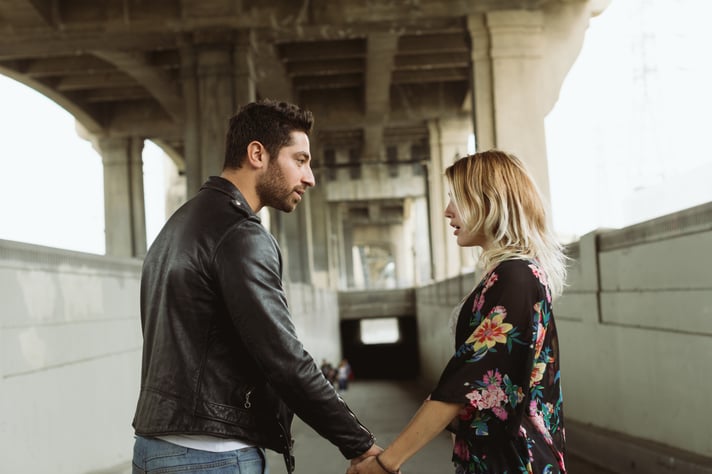
Broken trust. It’s the primary issue that family members talk about when they discuss what’s been the most difficult for them when they’ve been impacted by the disease of addiction. They want to trust their loved ones again. Their loved ones want to be trusted. How do we heal something that’s become so damaged?
It’s almost easier to talk to someone about how to rebuild trust than it is to help someone to trust again. In the sessions I lead with our Retreat Guests we talk about the importance of showing up and being true to their word as ways to start rebuilding that trust. I also let them know that this won’t be quick and easy. Trust takes time.
We live in a society where the phrase “trust is earned” gets thrown about a bit. That phrase can be accurate on some accounts, as it’s difficult to trust someone who is untrustworthy. However, that phrase doesn’t capture the essence of trust.
I believe that trust is a gift. If my loved ones spend all day long, every day, trying to regain my trust, they won’t ever receive it until I’m ready to give it to them. There is giving and receiving included in this process.
If you are a family member, it may be difficult to believe that you will ever trust again. One of the questions I ask family members to consider is “what can you trust?”
I am lucky to have a friend who is one of those friends who is great at keeping confidences. Anything I share with her will be kept within the confines of her heart. It’s excellent to have a friend like this in life! I trust her with my heart! This particular friend is someone how is always running at least 15 minutes late. She’s never shown up on time when we are scheduled for a walk, or coffee, or anything else. It’s just not in her nature! So, although I trust her implicitly with my heart…I have yet to trust her with a ride to the airport.
Although the example may seem silly, if I’m able to pick or choose trust in this relationship I’m actually able to do this in the rest of my relationships, as well. Even the relationships that feel difficult.
One of the presenters at our Family Program speaks about this issue when she shares. Her husband has struggled with relapse, and when participants in the program find out about this, she’s often asked how she’s able to trust him. Her response is always the same, “I may not be able to trust him to do what he says he’s going to do, but I trust that he loves me.” It’s a powerful statement.
Trust is a process. Sometimes the trust needs to be rebuilt with ourselves first. Sometimes the first thing that we trust in recovery is that the others who are there with us aren’t making this up, and it’s okay to have some hope. Sometimes we learn to trust a Higher Power. Sometimes all of this needs to be accomplished before we can considering trusting someone who we’ve felt hurt by.
But, in all of this, one factor stays the same: trust doesn’t happen unless we’re willing to give it. What can you trust? What do you trust? Where can you find opportunities to give this gift to yourself and others?




/Staff%20Photos%20-%20Circular%20(2018)/Sherry%20Gaugler-Stewart%20-%20circle.png?width=100&height=100&name=Sherry%20Gaugler-Stewart%20-%20circle.png)
